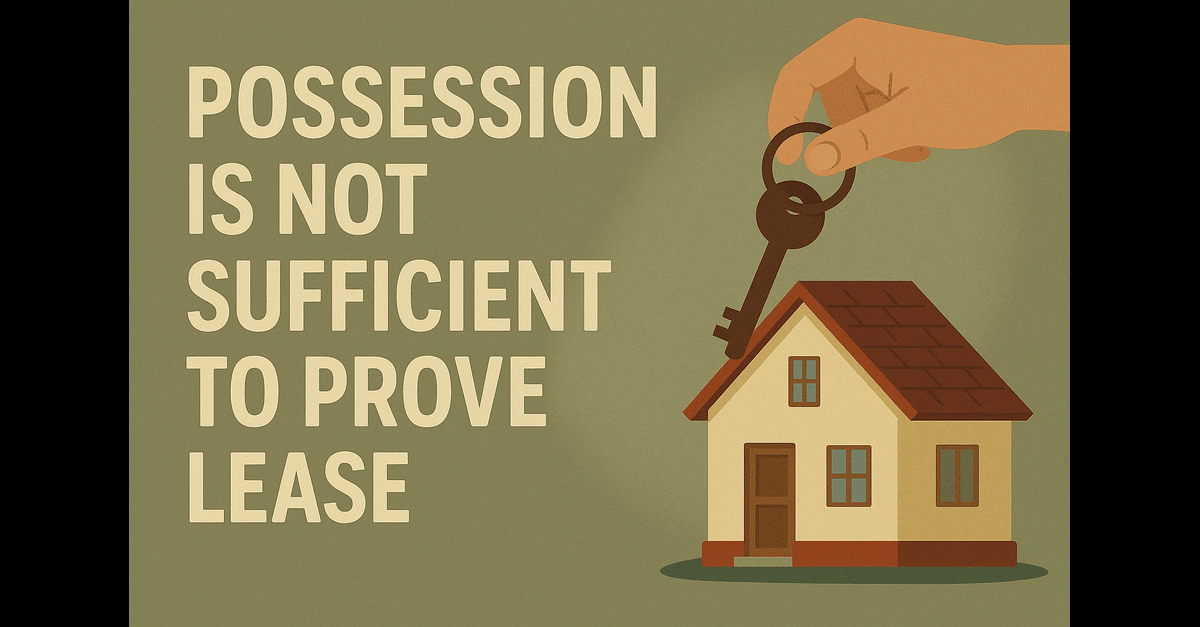CASE NAME: ANNAYA KOCHA SHETTY VS LAXMIBAI NARAYAN SATOSE
CASE NUMBER: CIVIL APPEAL NO.84 OF 2019
DATE: APRIL 8, 2025
QUOROM: JUSTICE PANKAJ MITHAL, JUSTICE S.V.N. BHATTI
Facts
The case of Annaya Kocha Shetty v. Laxmibai Narayan Satose revolves around the long-standing dispute between two shops in Mumbai. The properties involved in the dispute were originally leased to the husband of the first defendant. After the first defendant’s death, the wife of the first defendant took over as lessee of the property and continued to run the hotel from the same premises.
She was unable to manage the hotel alone and hence she entered into an agreement on August 16, 1967, with the appellant. This agreement was titled “conducting” the business has allowed the appellant to run the hotel and over the years this arrangement was extended multiple times.
In the year 1997, the landlady issued a notice asking the appellant to vacate the premises and in response to the same, the appellant filed a suit, claiming that he had become a “deemed tenant” within the meaning of Section 15A of the Bombay Rent Act, 1947. While the trial court ruled in his favour, the Hon’ble High Court ruled in the favour of respondent and held that the appellant was merely running the business and did not hold any tenancy or license rights.
Issues
- Whether the agreement and license contract are sufficient to be a deemed tenant under Section 15A of the Bombay Rent Act?
- Whether the appellant, be treated as a deemed tenant based on the wording of the agreement?
Legal Provisions Involved
- Section 15A, Bombay Rents, Hotel and Lodging House Rates Control Act, 1947, sections 91 and 92, Indian Evidence Act, 1872, section 108, Transfer of Property Act, 1882
Appellant’s Contentions
- The appellant argued that despite the fact that the agreement was labelled as a “conducting” arrangement, it provided him of exclusive possession over the property changing the nature of the contract to that of a lease.
- The appellant submitted that he was responsible for the day-to-day business which includes the paying of utility bills and staff salaries. Further, he also made regular monthly payments in the nature of rent.
- The appellant relied on past judgments of the Hon’ble Supreme Court wherein the court specifically held that the courts shall look at the actual substance of the agreement and the conduct of the parties and not merely rely on the title or wording the agreement.
Respondent’s Contentions
- The respondent argued that the agreement was strictly limited to allowing the appellant to operate the business, without transferring possession of the property.
- Every version of the agreement, consistently used the term conductor for the appellant and owner for the defendant and the payments were called royalty rather than rent.
- The respondent argued that Sections 91 and 92 of the Indian Evidence Act barred the appellant from utilising any kind of oral evidence as aid to interpret the meaning of a clear written agreement.
- Further, the respondent argued that there was no clause in the agreement which establishes a landlord-tenant relationship or even a license, the appellant’s claim was without legal basis.
Analysis of the Judgement
The Hon’ble Supreme Court examined the language and structure of the agreement and emphasized that while the title of a document does not decide its legal nature but the content and surrounding facts play a major role in deciding the nature of agreement. In the current case, the agreement never provided the appellant any possession over the premises. It only gave him the authority to operate the hotel. Further, the terms used within the document made it clear that the appellant was merely running the business and not occupying the property as a licensee or tenant.
Further, the Court also pointed out that the agreement specifically restricted subletting and required the appellant to return everything upon termination. These kinds of clauses strongly indicated that the appellant wasn’t being treated as someone with independent possession.
Since possession is a key requirement under Section 15A of the Bombay Rent Act, and the appellant never had that, his claim failed. Furthermore, because the agreement was unambiguous, the Court ruled that Sections 91 and 92 of the Evidence Act applied, meaning the appellant couldn’t use oral evidence to claim otherwise.
The Judgement
The Supreme Court agreed with the decisions of the appellate and High Courts. It found that the agreement was purely for conducting business and didn’t create any legal right of tenancy or license in the appellant’s favour.
As a result, the Court dismissed the appeal and ruled that the appellant was not entitled to protection under Section 15A of the Bombay Rent Act. He was also directed to pay ₹1,00,000 in costs to the first defendant.
Conclusion
This case highlights how courts go beyond labels and look at the true nature of a contract to determine the legal relationship between parties. The judgment reinforces the idea that unless there is actual possession and clear evidence of tenancy or license rights, someone conducting a business doesn’t automatically become a tenant.
It also shows how written contracts carry significant weight in legal disputes, especially when oral evidence is barred by law. The appellant’s role here was limited to running the hotel—he didn’t have possession of the premises. As such, he didn’t qualify for tenant protection under the law.
“PRIME LEGAL is a full-service law firm that has won a National Award and has more than 20 years of experience in an array of sectors and practice areas. Prime legal falls into the category of best law firm, best lawyer, best family lawyer, best divorce lawyer, best divorce law firm, best criminal lawyer, best criminal law firm, best consumer lawyer, best civil lawyer.”
WRITTEN BY LALITHA SASANKA G


